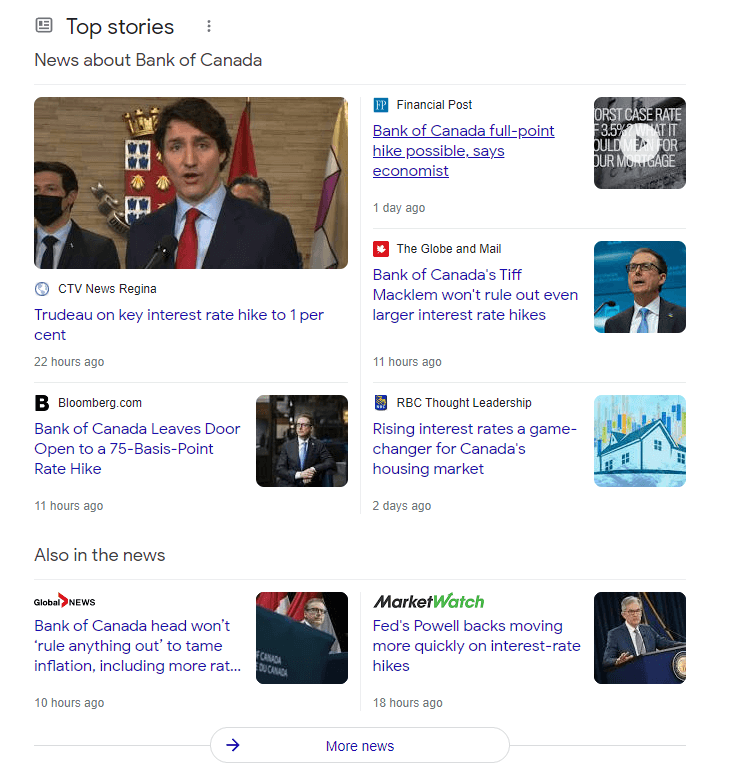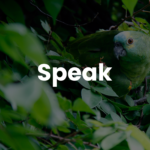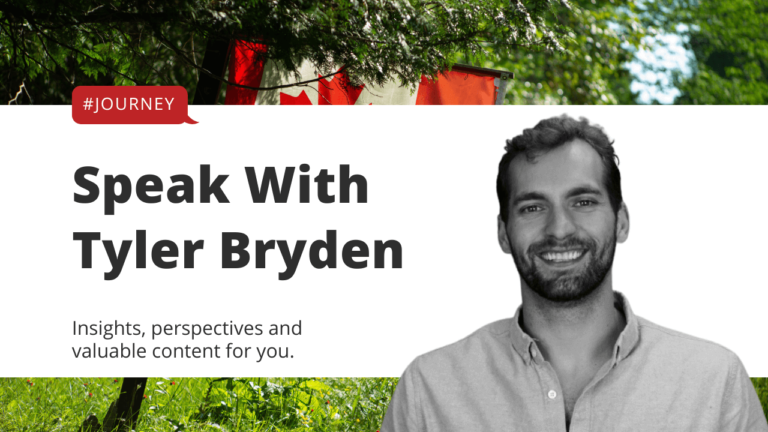Daily Standup 02
– More large interest rate hikes
– The fight against inflation
– Consequences for startup valuations and investor exits
– Founder salaries
– Netflix subscriber loss and market drop
– Seeking advice on cold outreach to investors
– WOMBO.ai Meetup tonight at their new office in Toronto
#interestrates #netflix #wombo #inflation #toronto #startup #startupcommunity #seedfunding #buildinpublic #founder #salaries #investorpitch #investment #seedround
Automated Transcription
All right hello. Hello Tyler Bryden here for daily stand up too Friday. Lots of stuff going on right now so I’m going to jump right into it and actually do a quick screen share. I got a couple things I want to talk about today. One of them in many people’s minds as as Canadians as Americans as an entire world dependent on markets and the economy. And so you know lots of talk about interest rate hikes.
We’ve seen a .5 prime jump here in Canada at the start of the month, and it looks like. More are coming so more interest rates, more interest rate hikes are on their way. What does this mean? How does this impact housing market food prices? How does this impact, you know for myself, more specifically, startups fundraising valuations, so much impact across the entire world.
So many consequences for this just for a localized version, something that that I’m tracking here. Bought a house in Mississauga. In November, so right around here before this sort of big, you know, big. Inflated, you know thing that shouldn’t have happened happened, and now what we’re seeing. You know we were seeing a positive trend on this going.
Continuing to go up and up and now obviously with these interest rate this has changed a lot. There’s effects on the stock market yesterday and you know this is this data is not even, you know, considering these you know more even even more aggressive sort of statements on interest rates. So I mean, this is something that that that I’m certainly following. As someone who bought a house, bought a house at a position that you know it was, you know, an expensive house already, and against my chagrin, you know, I don’t know if that’s the right way to say this. Took a variable rate, a very low variable rate.
Mind that and one that was recommended by several people throughout. But throughout this entire time I had this gut feeling of got to take. We should take this fixed rate, why, why? Why would we take this risk right now? And I think you know the thought at the time.
Is this variable rate is so low you’re still going to win out in the long run, but you know with some of these changes and was sort of more aggressive, you know aggressive approach than I think anyone thought. This is the impact of it, so obviously this has an impact on on you impact on me and something that I’m following. If you’re going inside in perspective, would love to love to talk about this and I think overall this is a larger theme of just like fighting against inflation exact number. Don’t know it, but it’s like six 6% here in Canada and we’ve seen like 8% numbers in in America here. And you know this is, you know, quite a game that is being played.
The markets reacted. Yesterday to you know more talk of interest rates and how to drop there, but overall no one wants to see this inflation happen and you know, I think we’re all feeling it as as people living day-to-day. Whether it’s gas, whether it’s food you know you can, you can feel that when you’re taking out the credit card, taking out the debit card, or nowadays tapping your phone and noticing, hey, my grocery bill has gone from 150 bucks to 300 bucks. I’m not exactly sure which. And this is where this is.
You know, it’s weird when each product is just like $0.25 and more expensive or whatever it is, but that adds up at a lot when you’ve got a cart and you’re also trying to eat healthy and take care of yourself so you can operate it at high performance there so. There is, you know, the trend. As I mentioned something that this this is important to me is like how does this impact startups? How does this impact? If you are depending on doesn’t you know what stage you’re at?
If you are a founder and you’re trying to raise your first round, what does that look like? If you are a a Series A company that raised at a 50 to 100 times revenue multiple in November when it was a very frothy market and money was being thrown around everywhere you raised that say $80 million valuations, your revenue isn’t that strong like you are now trying to avoid having a down round. And if you’re burning money quickly. Trying to raise in these market conditions where you haven’t made significant. Revenue growth and added R.
You’re going to have a real challenge as people move towards less risky investments. Everyone’s been hit by this this, you know these these stock market sort of Corrections here and people are looking like where is the safest and best place to put my money in a time of uncertainty and volatility. And there is a lot of you know investment firms that have raised big funds in this frothy market and have to deploy that capital. But at the same time the focus on sustainability on profitability. On lowering burn, increasing your runway these are all you know, very acute right now, and if you can’t show that top line revenue growth in this market, you’re going to not be able to raise at more than $80 million on your next round.
You might even have to take it down round and. In the past, that was sort of like a kiss of death. These days there might be more acceptance of that, but still a lot of companies are going to shut down a lot of rounds are going to close, and there’s going to be some significant impact on the startup market here. And sort of the the looseness that has happened based on the capital that was being invested. Maybe without some due diligence, or maybe without focus on some of these you know important parts of being a business like sustainability, profitability, so recommendation to myself has that that I, you know that I’ve been given and.
It’s just that I say is like, yeah, lower your burn focus on customers, increase your top, increase your revenue and try to get to sustainability or low burn or profitability and really show that you can create value that people are willing to pay for. And obviously that’s a you know that’s an interesting proposition in a time where everyone is trying to figure out the same thing like. Is it harder to sell right now and or are you? Are you trying to sell solutions that are helping people save money? So these are some of the questions that I think are being asked and the other sort of impact this has had is that investors are seeing you know much lower returns and I think in Q2 I should have all these resources.
I do not, but in Q2 investor exits went down like the return went down like 80%. There’s many companies right now. Who were on the path to IPO and going public going public? And because of the market conditions, because of you know big percentages being eat off eating off like well, performing good companies then you know they are no longer able to IPO so that money is locked up. There’s no liquidation available and they’re trying to figure out when do we go into the market?
When do we time this to actually have success? Because there’s a lot riding on. This has been a lot of investment, a lot of work and. These aren’t companies in specific, but you look at companies like Canva and Grammarly and some other companies who are sort of waiting to possibly IPO. What do they do? And luckily, some of these companies are doing some really really good stuff right now so.
Other thing wise, you know a big story this week. Sort of this Netflix stock and you know the shortest showed that they had lost. Yeah, closes down 3535%, wiping off more than 50 billion from the market cap. Lost subscribers. And, you know, for me, the no feeling around this is like.
When everyone had Netflix and there wasn’t this diversified streaming services, you wanted to have Netflix too. There was this FOMO that was part of it, and now as people churn off Netflix and go to other sources, whether it’s prime or Disney, not CNN plus. But you know these. This formal disappears and I actually think there is now. This is going to be this.
It’s this sounds weird, but this level of sort of coolness. If you could use it as that to not be on Netflix. So these have compounding impacts. This is obviously a significant, you know, drop that that has happened here and interested to follow the story. I know this Bill Ackman lost about $400 million on a 3 month position on this, so some people probably very unhappy right now.
And you know another sign of. No changes in the market and a lot of a lot of volatility, so I’m already 8 minutes, wow. Two other things that I’m I’m thinking about and wanted to share. One of the things is this idea of. Read this article and I’ve got to find it, which is like sort of founder salaries, and it tracked the salaries from a founders from sort of preceded all the way to seeds there, sears, whatever and. You know the even had examples of companies who had tooken really good salaries versus ones who had not.
And that was just a really interesting piece, and this is also, I think. Puzzle or formula that people as founders are trying to put together. It’s just like. Those people who are very emotionally connected to the company that they have the journey that they’re on. But a lot of them are still their business people, they’re entrepreneurs, and they’re trying to play out the best scenarios.
And so if you’re a founder, taking these salary cuts to grow the business and decrease your burn, you know. Are you actually optimizing for an outcome that’s best for you and for people around you, especially in these market conditions? So this is a question that’s going to be asked. I think this is a going to, you know, this time can. While some companies really good companies are made in times like this, there’s also going to I believe, stop. People from taking risks and and maybe going more of a safe bet.
Taking this, you know a salary at a company that’s well established that’s growing that has figured out some of these mechanisms and has sort of put together this system in in place. And on that note, like what I was interested in, is that obviously there’s a lot of technical founders. These people, you know engineers who are talented who have run companies or founding companies they have. Really, they’re going to find opportunities, but if you’re not. A developer, not an engineer. Where can you go?
And so I’ll share this link. I just thought this was an interesting article that I followed this guy and he shared it and it talked about high paying roles that don’t require you to code so product managers, data scientists, you know, designers, marketers, UX and so just an interesting article. And so if you are. A founder and you are saying hey, am I going to take, you know, a 50K to 120K salary? Work my butt off and hope for an outcome.
Hope that my equity is worth it. Knowing that the conditions are the way there they are. Or do I want to take a 360 K salary plus a K80K signing bonus from Robin Hood? That math starts to change a lot, and that’s something that’s that’s a trend that. Or sort of a consequence of all this that I’m interested in following.
And as someone who’s obviously invested a lot into a company and a lot of time and energy. Tracking this as well so and so I apologize, I didn’t have that showed up on the screen, but you can see that so sort of plays out all the different companies and everything here, so really pretty fantastic resource and a lot of research went into this pretty interesting sort of piece of information. For for for a lot of people out there, especially the ones who don’t code because we don’t all code, but we’re we’ve. We still have value in this world and I guess two other last points are going to keep this as tight as I can. You know, for my for myself right now, one of the things that I’m doing and it’s, you know, it’s hard in a in a, you know, a tough market is outreaching to investors and some of these you know.
I have built relationships over time, but it never don’t have the network that some people have and so part of this requires cold outreach. Trying to personalize those messages as much as possible with that personalization takes time. And then because of. You know whether external circumstances like market volatility? You don’t necessarily have the same frictionless path to investment, especially if you’re you know you’re considered a first time founder with no exits.
All these things, so people are then really optimizing on. I don’t know if there is a safer bet, but either safer bets and then also the moon shot bets that they they think, and so maybe your business doesn’t sit exactly in either one of those camps. And then you’re left out to dry. So exploring that looking for advice. For anyone who’s accessing successfully built out cold outreach and sold to investors, you know I I have sort of a template or a structure.
Would love to share that. Get some feedback if there’s any intros or anything, or you just think that there’s a better method than what I’m doing now. My wasting my time orders better way would love love your insight there and then last just excited. Today there is a wombo AI which a great company here. Let’s see if I can pull them up.
Since they are in. Toronto and I think this is really cool what they’re doing. They opened up. They opened up a meet up group and so they’re having a meet up tonight in Toronto. I’m going to be there excited about that.
Let me see if I can pull up the meeting. The meet up very quickly so that you can see that. And I just think this is a great. You know they raised some money. They got an office and they’re sort of celebrating that, and I think that’s something that should be done.
I think it fosters community. And yes, you can see here. The meeting for some reason. OK, no, that’s good. So it is crypto, you know, I have my own skepticism about this, especially in the market today.
But 120 people are there, eat first party, second degen last, lots of food. So I think this is great for them to do. Excited for the event tonight obviously looks like it’s going to be pretty packed and you know anytime you can bring together community of people who care about this kind of stuff and are are all optimizing towards success. I think that’s a great way to build your company and build your community. Build awareness and also just make some great friends and connections.
So I’m out. Thank you so much for checking this out. You did hope I ended up, you know, sort of modulating between positive and negative here, with some of the stuff that’s happening right now. But again, appreciate this very much. I hope you have a great rest of your day and a great weekend.
Thank you.




